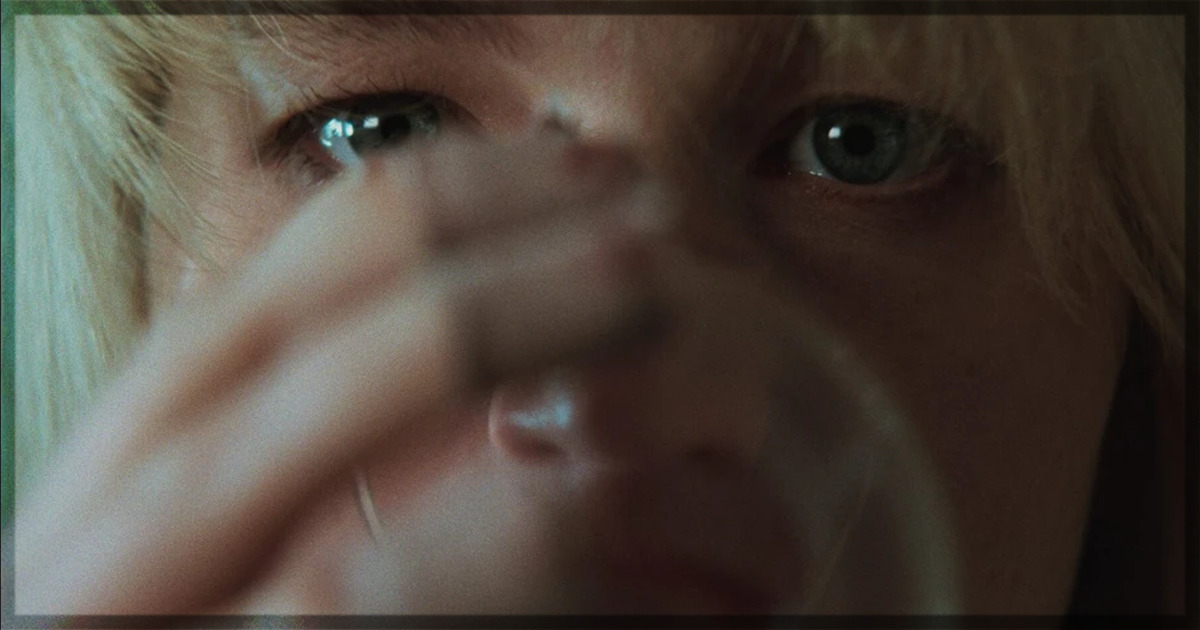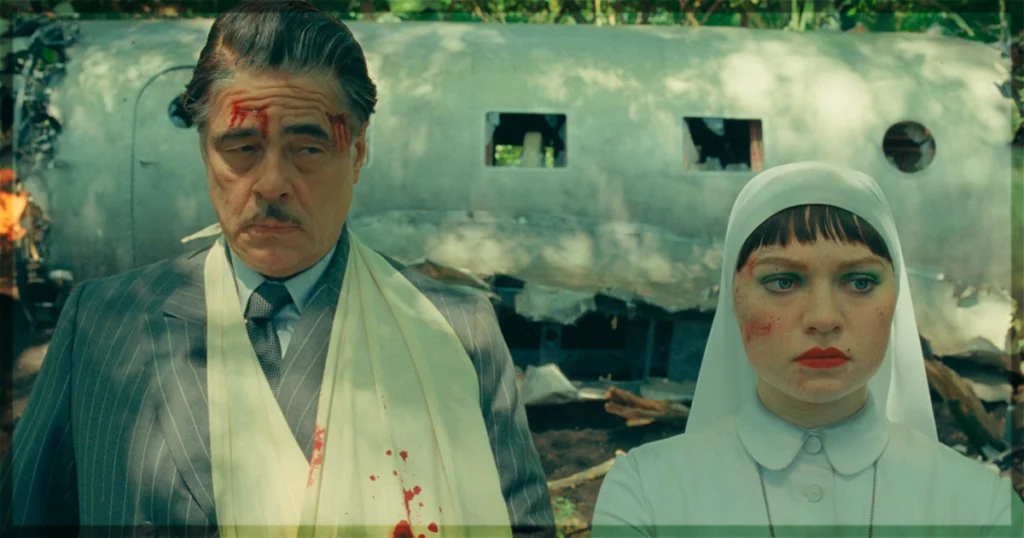You wait your whole life for two female directors to adapt books written by women about artists who are thunderstruck by the prison of motherhood, then two come along in the same year. In December 2024 Marielle Heller gave us Nightbitch, and now this year’s Cannes Film Festival has given us Die, My Love, by Scottish director Lynne Ramsay. Among other similarities, both movies feature world-class actresses (Amy Adams and Jennifer Lawrence) rolling around in the grass barking like dogs. Therefore the world is waiting for the male leads from American Hustle, Christian Bale or Bradley Cooper, to play dads going through the same thing. But we all know that isn’t going to happen; men leave the work they don’t want to do to women. But Ms. Heller deserves more credit than Ms. Ramsay is due, because she made her movie with no interest in the male gaze. Ms. Ramsay somehow centers the male gaze in nearly every frame, and while this means the movie will find a bigger audience, the resulting incoherence means it won’t find one which understands it.
To begin, this critic is heartily sick of movies about so-called family issues which give the hero a robust support structure and the heroine absolutely none at all. No group chats, no favorite cousin, not even a dopey teenage babysitter. The fact this setup is replicated in Die, My Love is irritating from the start, not least because the mother-in-law Pam (Sissy Spacek) means very well. Her son Jackson (Robert Pattinson) and his partner Grace (Jennifer Lawrence) have inherited the house of her late brother-in-law in a small town in Tennessee, or maybe Montana (although it was filmed in Alberta). Jackson does something in the music industry which is never specified. Money is never mentioned, but Jackson spends long amounts of time on the road with their car, leaving Grace by herself with the baby to blast nervewracking songs on repeat (like she’s the husband from Anatomy of a Fall) and not write her novel.
Maybe she should have hitched over to where underappreciated genius Rosamund Pike was also disintegrating with resentment at losing her artistic identity in the midwestern setting of Gone Girl. But no; the Amazing Amy wasn’t a mother. Instead Grace goes on long walks with the baby and they pat the neighbor horses. She notices a biker guy who rides past the house slowing without stopping. She hoofs it over to Pam’s even though she knows Pam keeps a shotgun at arm’s reach since her husband died. She does a lot of masturbating and wandering around empty fields and farmhouses in flattering deshabillé. She fantasizes about all the sex Jackson is obviously having all the time while he is away from her. When Jackson brings home a little dog, Grace refuses to clean up after it, so the house descends into squalor. The implication of the casting of Ms. Spacek means you can guess most of the rest.
The issue is meant to be how Grace is choked with anger at how her own identity has been erased now she’s a mom. People greet the baby instead of her and ask how the baby is without showing her the same courtesy. It doesn’t help that when Jackson is around he’s unpleasantly critical and doesn’t carry any of the mental load. In Nightbitch, you at least got the sense Scoot McNairy meant well. Here Mr. Pattison layers irritation and anxiety under the resentment he displays, meaning it doesn’t seem like Jackson loves Grace, with a side effect of making one of the plot twists more than a little forced.
Speaking of force, every now and then Jackson will physically force Grace into the car for a drive so they can talk – or sit in seething, furious silence while country music plays on the stereo – leaving the baby alone in the house. But Grace would never have left the baby alone herself. Oh no. Grace is the perfect mother, of course. Of course. A woman at the center of a movie about how motherhood wrecks your life might not have a career nor be much of a wife, but god forbid she be anything less than a perfect mother. As regards her kid, she doesn’t even have a negative thought. As for Jackson, well. No one says a thing about his decision to leave the baby alone, but he is only the dad.
Also every now and then Grace will track down the biker guy and have sex with him. It’s impossible to tell whether or not this is real or a hallucination, and this subplot is mentioned only because the biker is played by LaKeith Stanfield. I say played; literally anyone could have done it, because there is nothing there, and it’s the biggest waste of a major actor’s talents in a considerable time. Ms. Lawrence is as mesmerising as she always is, but she has only tics, mannerisms and spite to work with. If Grace’s mental health is genuinely disintegrating perhaps Seamus McGarvey’s cinematography shouldn’t have been so sun-kissed. If Grace’s mental health is fine but the pressure of tedious, isolating boredom only alleviated by some light stranger danger is getting to her, maybe the music, editing and special effects shouldn’t have been as heavy-handed as the most gratuitously schlocky horror movie.
Because this is a horror movie, but not the one it thinks it is. The brief sequence where Grace fingerpaints with fountain ink smeared with drops of breast milk implied a much more interesting look at how motherhood – not parenthood – alters creativity. Unfortunately Ms. Ramsay, who adapted Argentine writer Ariana Harwicz’s novel with Irishman Enda Walsh and Englishwoman Alice Birch, decided to stick with the tried and tested bitches-be-crazy. The novel is set in France so the choice three Europeans made to swap it to an American setting probably means the disjointed, dislocated feel is by accident instead of design. As in Rachel Yoder’s Nightbitch, in the novel version of Die, My Love none of the family have names, so the choice of Grace for the heroine is an insultingly basic metaphor.
The biggest surprise is that Martin Scorsese is credited as a producer; apparently he read the book and thought it would be a good part for Ms. Lawrence. And it is, because Ms. Lawrence has found herself in the same trap as so many other beautiful female movie stars: being judged on their faces and figures instead of their talents, and being unable to escape that judgement no matter what they do. Take your clothes off and you’re cheap, keep them on and you’re a prude. Stay at home with your kids and you’re stupid, go back to work and you don’t love them. Focus on indie movies and you’re a snob, star in major blockbusters and you’re shallow. Feed the kids expensive organic snacks and you’re privileged, let them eat sugar cereal and you’re harming them. Whatever women do, we can’t win, and this is by design, because the men have simply absented themselves from the responsibility for these issues (a generalisation meant in every sense).
It is maddening to see Die, My Love come so close to admitting why modern motherhood can be horrible for a woman who is isolated and financially dependent and just… not. On the other hand, we all know how violent men can get when women tell them truths they don’t want to hear, and we all know this is a man’s world. In that sense Ms. Ramsay is an excellent player at the game. But the game of gender roles is rigged, and it would be so much fresher to see art by women direct our rage at the real enemy.
Die, My Love recently screened at the Cannes Film Festival.
Learn more about the film at the Cannes site for the title.


